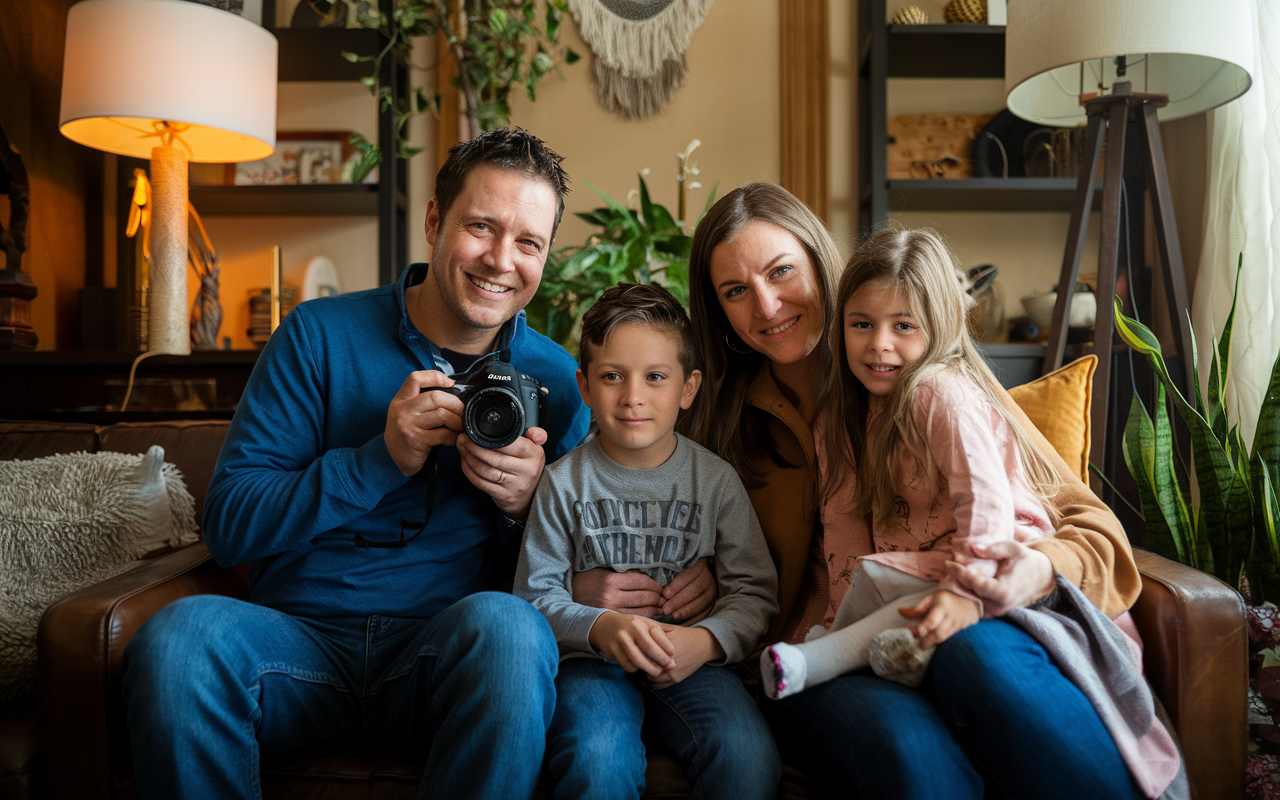The Rise of Snark: How Reddit Communities are Changing Family Vlogging 🌐🎥
Family vloggers once graced our screens with smiles, laughter, and heartwarming moments, but now they find themselves under scrutiny and criticism from an unexpected source: Reddit’s snark communities. 🤔💬 As consumers of content become more aware of the ethical implications of featuring children in monetized content, a backlash is brewing against these once-beloved influencers.
The Shift from Fans to Anti-Fans 🚫⭐
Take the case of Lola, a former fan of the LaBrant family. After tuning into their videos filled with wholesome family dynamics, she began questioning the legitimacy and the impact of the content they produced. When she realized the kids were being overexposed, her comfortable viewer experience transformed into one of concern and criticism. Finding a community of fellow skeptics on Reddit allowed her to voice her thoughts in a space that thrives on dissecting the actions of influencers. The LaBrants, with 12.9 million subscribers, have become a staple of conversation in communities like r/LaBrantSnark—home to 44,000 members.
As creators continue to monetize family life, many viewers are becoming "anti-fans," a term coined to define those who engage with the content not out of enjoyment but through a lens of critical examination. This transition from loyalty to scrutiny marks a cultural shift. 🤨📉
Normalizing Snark as a Community Response 💬👥
The rise of snark subreddits creates a unique dynamic around the influencers they discuss. For many, these platforms have transformed from simple gossip forums into spaces for advocacy, with members expressing concern for the well-being of the children often featured in these videos. One 40-year-old snarker admitted, “Snarking feels like a way to be a voice for the kids.” Many believe that exposing the darker sides of family vlogging is not simply entertainment but a method of imposing ethical considerations on influencer culture.
Despite their noble intentions, these communities sometimes find themselves caught in the same problematic patterns they criticize. Discussing the personal lives of children—even under a guise of concern—could perpetuate the very exploitation they seek to dismantle. 🥴📸
The Psychological Toll on Family Vloggers 💔
Responding to the backlash, some creators voice a deep discomfort with the discussions surrounding them. One influencer declared the Reddit community a "dark place," suggesting it takes a toll on their mental health. Family vlogging has not only subjected children to public scrutiny but has also thrown creators into a cyclone of criticism, where their every move is analyzed and dissected.
A poignant example is that of Ruby Franke, whose family's channel garnered millions of fans and was later thrust into the spotlight for darker outcomes involving child abuse allegations against her. As these communities expand, many influencers wonder if it's possible to yet be viewed as a former fan when they’re still part of a cycle of public discussion that borders on obsession.
Finding Balance: What’s Next? ⚖️
As we navigate this digital landscape, a pressing question remains: how can we enjoy family vlogs while ensuring that we protect the children featured in them? Advocates urge for a more ethical approach, reminding creators of their responsibility to prioritize the well-being of the youngest members of their audience.
Viewers are encouraged to engage critically but compassionately, reminding us all of the blurred lines of entertainment, advocacy, and respect for privacy. 🌈💖
Once a source of pure joy, family vlogging has become a battleground between fans and skeptics. As the dynamics of media consumption shift, how do we reconcile our affection for family influencers with a desire for integrity and protection of vulnerable individuals? Let’s keep this conversation going. 💭✍️
Join the Discussion!
What are your thoughts on the rise of "anti-fans"? Are snark communities helping or hurting the situation? Share your opinions below! 👇💭
#FamilyVlogging #SnarkCommunities

More Stories
Exciting News: The Summer I Turned Pretty is Becoming a Movie
Reflecting on Robert Redford’s Legacy of Integrity and Artistry
Sara Rivers Appeals Dismissal of $60 Million Lawsuit Against Sean Combs: A Fight for Justice in the Entertainment Industry